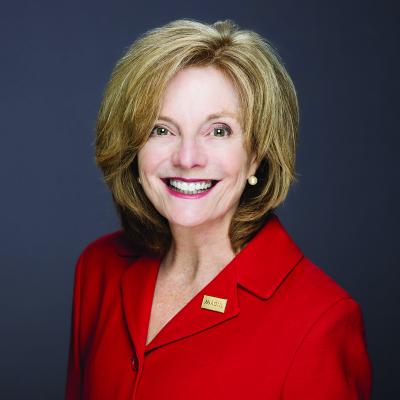
Voice of the President | March 2024

Workforce issues are at the top of every CNO’s list of concerns, so this edition of Voice of Nursing Leadership provides timely information. The issue brings together insightful perspectives from our members and nursing experts. It features articles on ethical international recruiting, the implications of artificial intelligence, fostering a culture of inquiry and a case study of a research project that fostered improved job satisfaction for nurses.
AONL has made providing workforce resources a high priority with the 2023 release of its 98-page Workforce Compendium, available on the AONL website. In addition, AONL plans to add to its workforce library which continues to empower nurse leaders with knowledge and tools to navigate the current environment. Recent additions discuss the nurse manager’s role in high-turnover environments and how workforce deficits have led nurse managers to implement team-based models of care. To inform its work, the committee conducted three national focus groups. Findings from the focus groups are presented with suggestions, competencies and organizational considerations. AONL will release additional resources in the coming months.
More workforce insights came from the AONL Foundation’s 2024 Longitudinal Nurse Leadership Insight Study, the fifth iteration of a nurse leader survey. The study, released in January, showed that recruitment and retention ranked among respondents’ top three challenges. While still an obstacle, the state of staff emotional health and well-being is at its best since July 2020. The challenge of traveling nurses and contingent workforce also has improved substantially since the summer of 2022. An abridged version of the study’s executive summary is available in this issue and the full report is on the AONL website.
The longitudinal survey also shows that to address staffing challenges, nursing leaders are involving front-line teams in redesigning care models, increasing nurse recognition and offering flexible scheduling. Survey respondents identify increased interdisciplinary collaboration (28%) and a team-based approach to care models (27%) as top advancements. Innovative patient care technologies (22%) and virtual nursing (20%) are also gaining prominence, indicating a shift in nursing practices towards collaboration, innovative care models and technology integration. The public trusts and counts on nursing to improve our health system and nursing leaders are delivering.
Articles in this issue
In their article exploring the implications for artificial intelligence (AI), Bonnie Clipper and Michael Hasselberg share their views on how AI technologies are transforming health care. They emphasize the critical role of nurse leaders in championing education, fostering ethical use, facilitating collaborative decision-making, advocating for appropriate infrastructure and nurturing a culture of adaptability. This responsibility and opportunity positions nurses to actively shape the future of health care.
Anne Schmidt and her co-authors call for action to create and support a culture of inquiry in nursing units. They encourage the utilization of foundational concepts such as psychological safety, building connections and using design-thinking processes as a framework for a culture of inquiry. Their approach fosters shared decision-making and creativity, ultimately leading to nurse-led innovations.
In another article, nurse leaders from Gainesville, Fla., detail how a strong academic and practice partnership at the University of Florida and Shands Hospital had a significant impact on the development of leadership skills, workplace morale and communication among direct care nurses, nursing leadership and interdisciplinary partners.
Lastly, experts offer guidance on ethical and responsible international recruitment. They emphasize the highest standards of patient care, nurse well-being and international cooperation are achieved by engaging certified recruiters who adhere to the Commission on Graduates of Foreign Nursing Schools Alliance for Ethical International Recruitment Practices in Health Care. This underscores the importance of attracting and retaining skilled nursing professionals.
I extend my gratitude to the generous AONL Foundation donors listed in the 2023 honor roll appearing in this issue. Their contributions enable us to advance our mission to transform health care through nursing leadership.
Looking ahead, I hope you will join me at the upcoming AONL annual conference in New Orleans April 8-11. This event provides a wonderful opportunity for you to connect, learn and collaborate. No doubt, it will spur conversations about solutions to our workforce challenges. As we seize the opportunities that lie ahead to improve workplaces, nursing operations and patient care, let us remain united in our vision, “one voice advancing health for all.”
"The public trusts and counts on nursing to improve our health system and nursing leaders are delivering."

